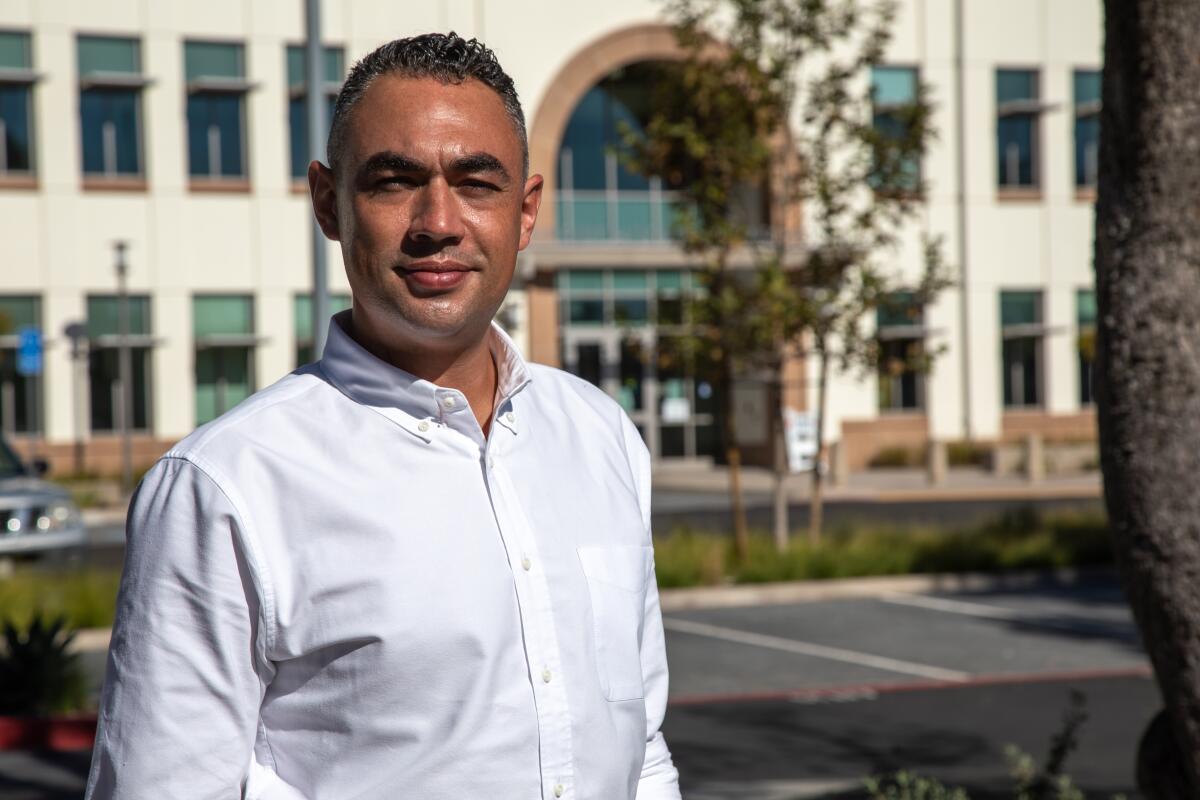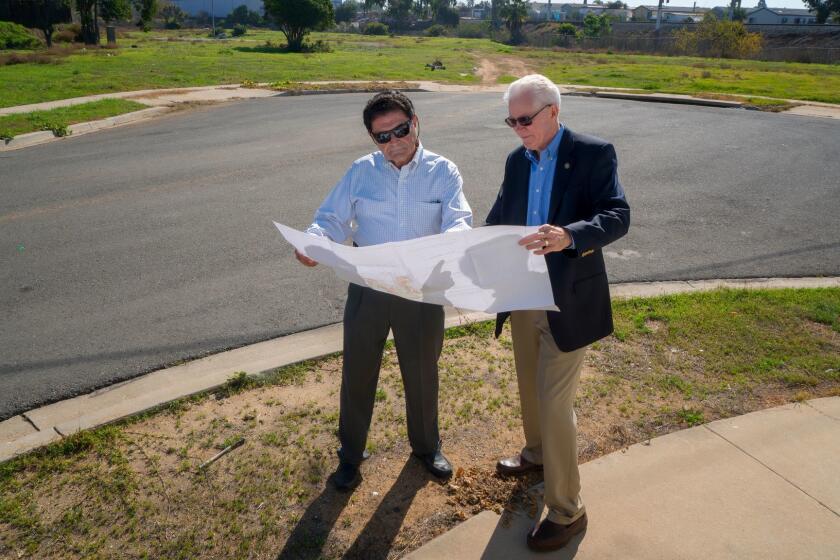San Diego leaders propose vacancy tax, community land trusts for housing crisis

- Share via
SAN DIEGO — San Diego’s new Democrat-dominated City Council is proposing several bold ideas to tackle the city’s affordable housing crisis, including creating community land trusts, a rent registry, vacancy taxes and forcing landlords to rent to people with pets.
City officials have routinely listed the housing crisis as a top priority, but most of the legislation has focused on streamlining existing regulations and creating incentives for housing developers.
The exceptions are two efforts spearheaded by former City Council President Georgette Gómez to preserve existing low-income units and strengthen the city’s inclusionary law so developers must build more low-income units.
Now the City Council, with an 8-1 Democratic majority and five new members, is proposing that San Diego begin exploring more aggressive ideas.
The council said solving the housing crisis has become more important with the city’s greater focus on social equity. Residents of color are the most affected by scarce housing, members say.
Council members Vivian Moreno, Dr. Jennifer Campbell and Raul Campillo said they want the city to study a possible vacancy tax, which would apply to the owners of undeveloped lots and landlords who have empty units.
The goals reducing the scarcity of rental units by creating an incentive for those units to be pushed onto the market and encouraging property owners to either build housing on their vacant lots or sell to developers who will.
Money generated by the tax would be used for additional subsidized housing construction and other help for renters. Two thirds of voters would have to support a ballot measure for such a tax.
Oakland already has a vacancy tax, and Los Angeles voters are scheduled to vote on what city officials call “an empty homes tax” in 2022.
Moreno, a member of the council’s Land Use and Housing Committee, said last week it’s time for San Diego to follow suit.
“As the city continues to search for ways to maximize housing opportunities for all, the committee should explore the concept of a vacancy tax, which would provide financial incentive for landlords and property owners to make any vacant units available for rent,” she said.
“Revenue received through this tax would go toward rental assistance, legal services for tenants and tenant outreach,” Moreno said. She proposed that the committee request that staff conduct a vacancy tax feasibility study and present the results by the end of the year.
Campbell agreed, contending the tax “could replenish the housing stock while generating new city revenue.”
Campillo, who estimated the study would cost about $250,000, also endorsed that approach.
Another proposal, endorsed by Council members Monica Montgomery Steppe and Sean Elo-Rivera, would establish a city rent registry, which would track the number of rental units, rental rates, vacancies and related information. The registry would be available to the public.
Cities with rent registries typically charge a small fee to landlords and use that money for tenant programs.
“Revenue generated from the rent registry fee should be specifically allocated to support a tenant board, maintenance of the rent registry and local rent control measures,” Montgomery Steppe said.
She wants the city to conduct a study analyzing the costs and feasibility of creating a registry and charging such fees.
Elo-Rivera also wants the city to study creating “community land trusts,” known as neighborhood land trusts, in some places.
Such land trusts, which are relatively rare in the United States, lower the cost of housing by allowing people to purchase only their house, not the land it sits on. The land, which is supplied by the government, is owned by a nonprofit.
In a place such as San Diego with particularly high land costs, trusts could make a big difference by significantly lowering down payments and mortgage payments.
Advocates say trusts are also a more efficient use of government housing subsidies, because typical subsidies help only initial recipients while a trust creates a low-cost home that multiple families could occupy over many years.
Critics say land trusts create a kind of second-class home ownership. The owners of homes built on trust land don’t share in the increasing value of the land, so they don’t build wealth on par with traditional homeowners.
San Diego already has one small land trust, in Nestor just east of Imperial Beach.
The cities of San Diego and Lemon Grove are poised to sell lots for $1 each to a nonprofit land trust that will build houses reserved for middle-class families.
But Elo-Rivera, a Land Use and Housing Committee member, said he’d like to see them everywhere.
“The committee should develop a plan that facilitates the creation of community land trusts throughout San Diego and should explore opportunities to utilize public land for affordable housing by vesting stewardship in community land trusts,” he said.
Councilman Joe LaCava, another member of the committee, wants the city to study and potentially approve a “pet-friendly” housing ordinance that would allow greater access to low-income housing for residents with pets.
Many landlords in San Diego prohibit pets or charge high fees to tenants who have pets. An ordinance could make it illegal to bar pets, or it could force landlords to pay penalties if they prohibit pets, or it could increase housing for pet owners in other ways.
The San Diego Humane Society has established a list of pet-friendly housing opportunities by neighborhood to help address the problem.
More to Read
Sign up for Essential California
The most important California stories and recommendations in your inbox every morning.
You may occasionally receive promotional content from the Los Angeles Times.












